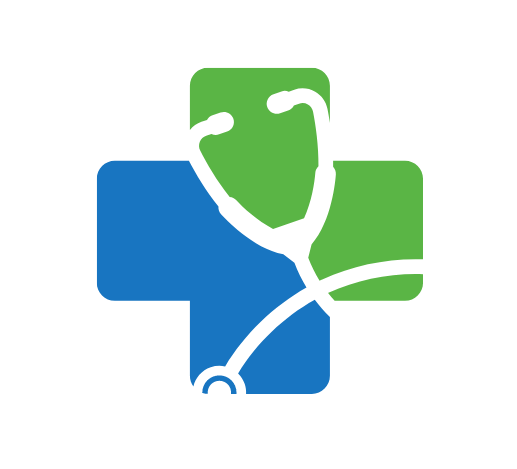
Resistant hypertension isn’t just about readings above 140/90 mmHg—it’s defined as uncontrolled blood pressure despite three different medications, including a diuretic. Shockingly, studies suggest up to 15% of hypertensive patients fall into this category. But here’s the kicker: nearly 1 in 3 cases stem from poor medication adherence or “white coat syndrome.” Before labeling it resistant, doctors often recommend 24-hour ambulatory monitoring to rule out false readings. Pro tip: If you’re in Istanbul, clinics like American Hospital offer advanced BP tracking tailored to your daily rhythms.
The Hidden Culprits: Secondary Causes You Might Miss
Sometimes, the real villain isn’t your heart—it’s your hormones or kidneys. Primary aldosteronism, a condition where adrenal glands overproduce aldosterone, accounts for 10% of resistant cases. Sleep apnea is another sneaky trigger; roughly 70% of resistant hypertension patients have undiagnosed OSA. In Turkey, experts at Ankara University Hospital emphasize screening for renal artery stenosis, especially in smokers or those with sudden worsening BP. Did you know? A simple urine test for protein can flag kidney issues early, a step often overlooked in routine checkups.
Medication Maze: Are You on the Right Cocktail?
Thiazide diuretics like chlorthalidone are gold standards, yet many patients stick to less potent hydrochlorothiazide. Calcium channel blockers or aldosterone antagonists (e.g., spironolactone) often join the mix—studies show spironolactone slashes systolic BP by 20 mmHg in 60% of cases. But caution: Potassium levels need close watch. Turkish cardiologists, including those at Acıbadem Healthcare Group, often personalize combinations based on genetics. Fun fact: A 2023 trial found bedtime dosing of antihypertensives improves nighttime BP control by 40%.
Lifestyle Tweaks: Small Changes, Big Wins
DASH diet? Old news. Let’s talk specifics: A weekly serving of börülce (black-eyed peas), rich in magnesium, can support vascular health. The Turkish Society of Hypertension urges limiting turşu (pickles) and pastırma (cured meat)—hidden sodium bombs. Exercise-wise, aim for “green zone” walks: 30 minutes daily in parks like Istanbul’s Emirgan Grove, where shaded paths prevent midday heat spikes. Bonus: Isometric handgrip exercises, 4×2-minute sessions daily, can lower systolic BP by 10 mmHg in 8 weeks.
Tech to the Rescue: Wearables and Home Monitoring
Forget sporadic clinic visits. Home BP monitors with Bluetooth, like those validated by Türk Hipertansiyon Derneği, sync data to apps for real-time tracking. Target: Morning readings below 135/85 mmHg. In Izmir, clinics now prescribe “BP diaries” where patients log meals, stress, and readings—patterns often reveal triggers like late-night çay (tea) sessions. The www.turkishdoctor.ae editor notes: Avoid caffeine after 4 PM; its half-life can disrupt nighttime dipping.
When Pills Aren’t Enough: Advanced Interventions
Renal denervation, a procedure using radiofrequency energy to calm overactive nerves around kidney arteries, has resurged with recent trials showing 10-15 mmHg drops. In Turkey, centers like Memorial Şişli offer it for eligible patients. Another option: Baroreflex activation therapy, an implantable device that tricks the brain into lowering BP. For those with fluid overload, ultrafiltration (removing excess fluid via IV) can provide quick relief—though it’s rare outside major hubs like Ankara.
Cultural Hurdles: Breaking the “İlaç Kullanmam” Mentality
In rural Anatolia, distrust of long-term medications remains a barrier. Local nurses combat this through “hypertension coffee hours,” blending BP checks with socializing. Traditional remedies like limonlu sarımsak (garlic-lemon tonics) persist, but experts warn: They’re no substitute for ARBs or ACE inhibitors. The Turkish Ministry of Health runs campaigns like “Tansiyonunu Ölç, Hayatını Kurtar” (“Check Your BP, Save Your Life”), targeting markets and mosques for outreach.
The Future: Personalized Medicine and AI Predictions
Genomic testing is gaining traction—polymorphisms in the ACE gene can predict diuretic response. AI tools, like those piloted at Koç University, analyze EHR data to flag high-risk patients before crises hit. Researchers are also eyeing gut microbiota: Early trials show probiotics with Lactobacillus strains may modestly lower BP. The www.turkishdoctor.ae team highlights wearable ECG patches as the next frontier for real-time arrhythmia detection in hypertensives.
Navigating Pregnancy and Resistant Hypertension
Preeclampsia isn’t the only concern. For women with pre-existing resistant hypertension, methyldopa or labetalol are safe bets, while ACE inhibitors are strictly off-limits. Postpartum, breastfeeding mothers face medication dilemmas—nifedipine passes minimally into milk, making it a preferred choice. In Turkey, maternal mortality from hypertension has dropped 50% since 2010, thanks to mandatory antenatal BP screenings.
Your Action Plan: Collaboration is Key
Managing resistant hypertension isn’t a solo mission. Build a team: cardiologist, nephrologist, dietitian. Demand medication reviews every 3 months—deprescribing redundant drugs is as crucial as adding new ones. Track symptoms like morning headaches or nosebleeds; they’re rare but red flags. And remember: Stress management isn’t fluff. Practices like nehir kenarında yürüyüş (riverside walks) or guided nefes egzersizleri (breathing exercises) can curb cortisol spikes.
Myth Busting: What You’ve Heard Might Be Wrong
“Alcohol lowers BP”? A glass of red might relax arteries, but nightly rakı sessions? Recipe for disaster. “Herbal teas are safe”? Hibiscus tea interacts with diuretics, risking potassium crashes. Even “thin people don’t get resistant hypertension” is false—genetics and stress don’t discriminate by BMI. The www.turkishdoctor.ae editor’s final tip: Question everything, even “normal” lab results. Optimal sodium? Under 2,300 mg/day, but ideal is closer to 1,500 mg for resistant cases.
From cutting-edge procedures to Anatolia’s grassroots health campaigns, taming resistant hypertension demands a mix of science and cultural savvy. Whether you’re in bustling Istanbul or a quiet Aegean village, the journey starts with one step: acknowledging that control is possible. Ready to take charge? Your heart—and your future—will thank you.

 then "Add to Home Screen"
then "Add to Home Screen"